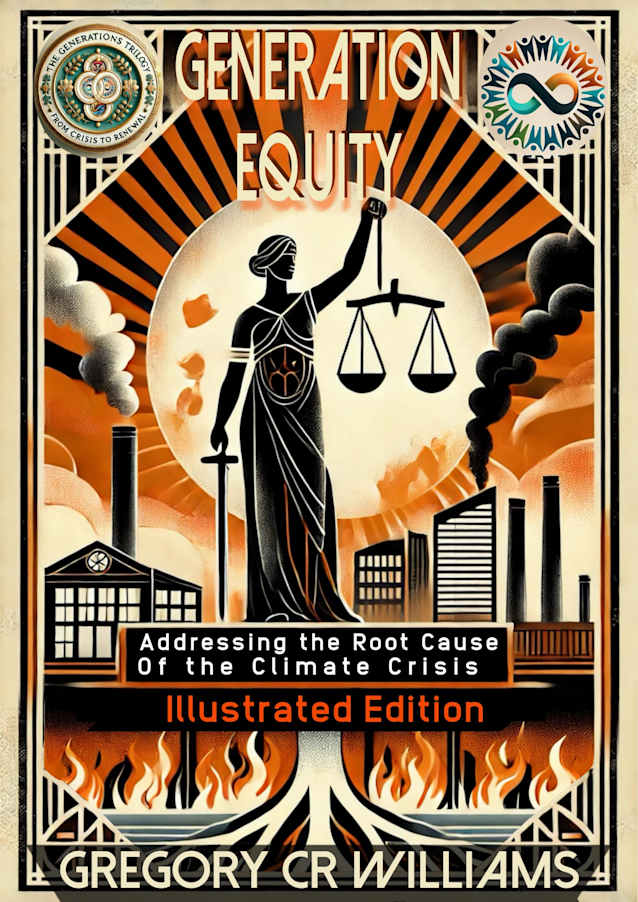Generation Equity : Addressing the root cause of the Climate Crisis (Generations for Change Trilogy Book 2)
About
Generation Equity offers a transformative blueprint for tackling the deep-seated forces driving environmental degradation. This book goes beyond conventional approaches to climate action, revealing that the deforestation, pollution, biodiversity loss, and climate instability we face are symptoms of a more profound issue—global economic imbalances that privilege the few while leaving lasting scars on our planet. With a focus on practical, systemic change, Generation Equity calls for a shift to economic systems rooted in sustainability, social justice, and shared prosperity.
Summary
As the climate crisis intensifies, Generation Equity argues that true progress requires more than policy tweaks and temporary fixes; it calls for structural change at the roots of our economy. Economic inequality, short-term profit motives, and relentless resource exploitation are the real drivers of environmental destruction. Rather than addressing mere symptoms, this book illuminates the need for fundamental restructuring—building a future that is not only sustainable but also inclusive and just. Themes • Economic Inequality as a Root Cause Economic inequality fuels environmental harm, concentrating wealth and power in ways that lead to resource depletion and unchecked pollution. Addressing this imbalance is essential to building an economy that nurtures, rather than exploits, the planet’s health.
- The Intersection of Economics and Environmentalism By exploring how economic systems and environmental health are inseparably linked, Generation Equity argues for a new economic model that prioritises ecological stability. The book makes a compelling case for an economy that serves the environment rather than endangering it.
- The Need for Systemic Change Piecemeal approaches cannot address the crisis at hand. Through real-world examples of economic democracy—where decisions are shared equitably—Generation Equity showcases how collective ownership and inclusive policies can set a new course towards a sustainable, equitable future. Focus Areas
- Critique of Current Economic Models Examining the limitations of capitalism and similar systems, the book challenges the focus on growth and profit as measures of success. It argues for redefined metrics that include social well-being and environmental health as core indicators.
- Case Studies of Equitable Economic Practices With inspiring examples from progressive cities, cooperatives, indigenous communities, and the digital economy, Generation Equity highlights successful alternatives already at work around the world. These examples underscore that a fairer, greener economy is not only feasible but flourishing.
- Pathways to an Economy Supporting Environmental Health Moving beyond traditional models, the book outlines practical pathways toward economic democracy and inclusive governance.
Exploring tools like distributed ledger technology, decentralised finance, and community-led movements, it demonstrates how innovative technology and grassroots activism can decentralise power, reduce inequality, and foster resilient, eco-friendly economies.
Generation Equity is both a call to action and a roadmap for those who understand that the climate crisis demands solutions that tackle root inequalities and systemic environmental injustices.
It invites readers to join a movement that values long-term sustainability over-exploitation, resilience over profit, and cooperation over competition. A compelling read for change-makers, Generation Equity reveals how we can rebuild our world—creating economic systems that serve both humanity and the Earth, building a future where both can thrive.
Welcome to the journey. The future awaits our action—let us answer its call.
